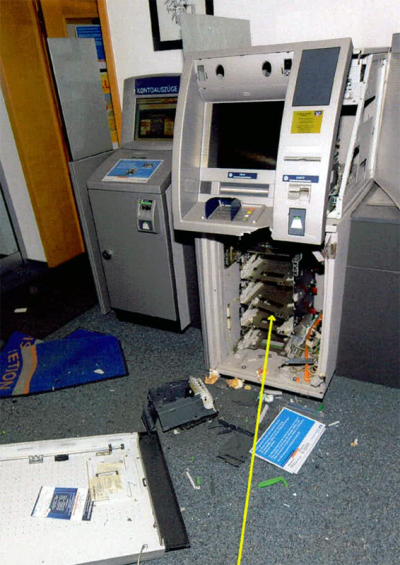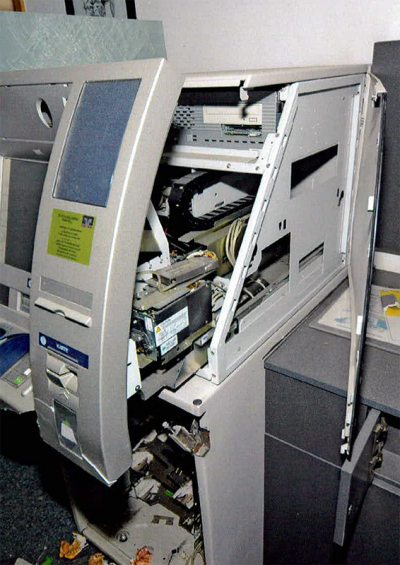Law enforcement authorities from Germany and Hungary, supported by Europol and Eurojust, dismantled an organised criminal group suspected of carrying out automatic teller machine (ATMs) attacks in the eastern part of the German state of Hessen.
On the action day, German and Hungarian police officers carried out 20 house searches. The operation resulted in three arrests in Germany and the seizures of assets. Five other suspects have been detained for questioning (four in Hungary and one in Germany).
The criminal group, which had been active since 2016, is suspected of blowing up ATMs worth €285 000. Aside from the destroyed ATMs, significant damage was also caused to their surroundings. The suspects broke open the front section of the ATMs and then poured explosive gas into the machine’s safe. Once the gas ignited, the explosion blew open the vault of the ATM.
Europol supported the investigation with operational analysis and facilitated the information exchange. Europol deployed experts to Hungary to cross-check operational information against Europol’s databases in real time and support actions in the field. To coordinate the investigations successfully, a Joint Investigation Team including Germany, Hungary and Europol was set up by Eurojust.

In 2010 the European Union set up a four-year Policy Cycle to ensure greater continuity in the fight against serious international and organised crime. In 2017 the Council of the EU decided to continue the EU Policy Cycle for the 2018 - 2021 period. It aims to tackle the most significant threats posed by organised and serious international crime to the EU. This is achieved by improving and strengthening cooperation between the relevant services of EU Member States, institutions and agencies, as well as non-EU countries and organisations, including the private sector where relevant. Organised property crime is one of the priorities for the Policy Cycle.
Tags
- Operational support
- Information exchange
- Analysis
- Mobile office
- Press Release/News
- News
- Other

